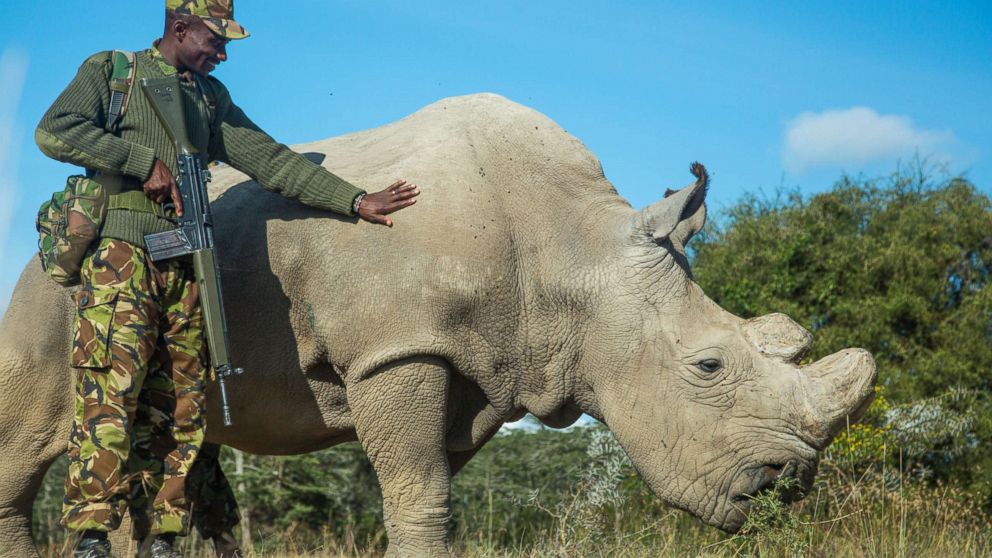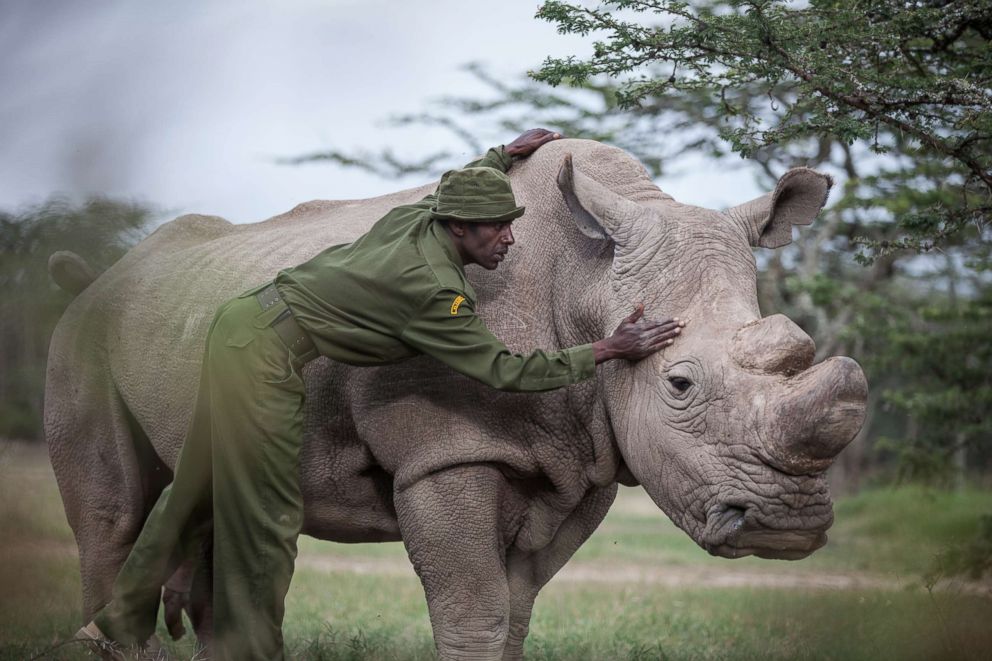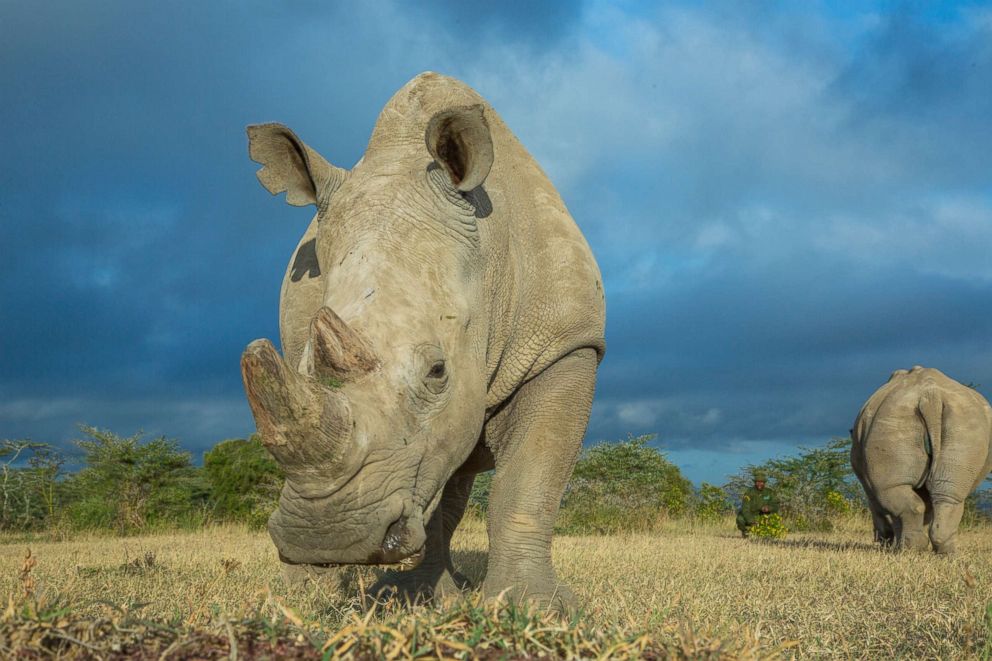Scientists 'cautiously optimistic' that treatments will save last male white rhino

Scientists are hopeful that treatment will help the last male white rhino in the world recover from his potentially life-threatening ailment.
The Ol Pejeta Conservancy in Kenya announced last week that the health of the 45-year-old northern white rhino, named Sudan, was deteriorating and that his future "was not looking bright" after he developed an "age-related infection" on his leg.
Today, Sudan's caretakers said they were "cautiously optimistic" that Sudan would respond to treatments being administered by veterinarians on site and that his spirits had been lifted after a bout of heavy rain in the area and a stroll through the grounds.
Sudan's caregivers are continuing to monitor him around the clock, but the possibility that he could be euthanized because of the infection on his leg still looms. The conservancy expressed that it does not want Sudan to "suffer unnecessarily."
Whether Sudan makes it or not, the success of the efforts made by conservationists and scientists to save the northern white rhino from extinction will depend on the health of his daughter Najin and granddaughter Fatu and in vitro fertilization, The Associated Press reported.

Fatu's eggs would likely have to be extracted because the rhinos are not able to reproduce naturally, according to the AP. Semen from dead northern white rhinos is being stored in several places around the world.
Northern white rhinos were last seen in the wild at the Garamba National Park in the Congo, which is often targeted by poachers, the AP reported. The subspecies was especially vulnerable due to conflicts that swept through central Africa.

In 2015, the Ol Pejeta Conservancy told ABC News four armed rangers in Kenya were guarding Sudan after he was acquired by the Dvur Kralove Zoo in the Czech Republic.



